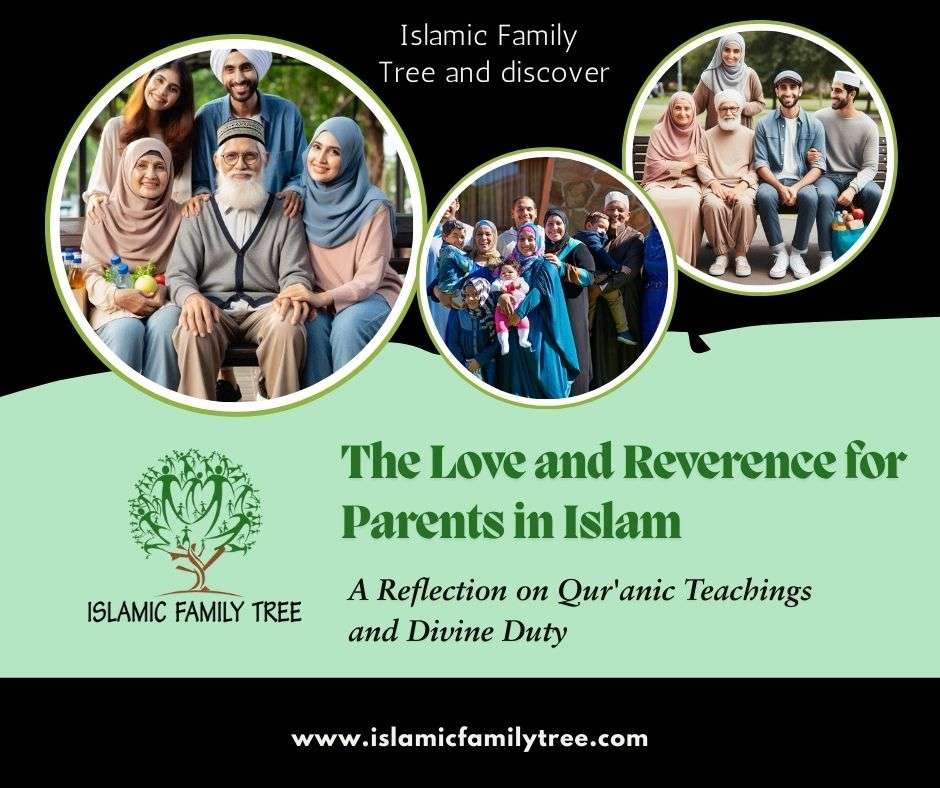
The Love and Reverence for Parents in Islam
A Reflection on Qur’anic Teachings and Divine Duty
The love and regard towards parents is in one place in Islam, being made particularly beautiful through multiple verses in the Qur’an. So it is between affection but based on very high mutual respect, a cause for thankfulness toward others also and mutual obligation among individuals. One of the strongest verses that gives it much emphasis is this one:
Surah Al-Isra (17: 23-24) “And your Lord has decreed that you worship none but Him, and that you show kindness to parents. If one of them or both of them reach old age in your fortune, say not to them a word of disrespect nor yelp at them but address them in terms of honour. And lower to them the wing of humility out of mercy and say, ‘My Lord, have mercy upon them as they brought me up when I was little.’
This verse tells the essence of parental love and the amount of respect and care that Islam demands from children for parents. Among some of the major things gathered from this and other Islamic verses are as follows:
1. Status of Parents in Islam
Islam places parents second to the worship of Allah. The Qur’an contrasts the command to be good to one’s parents with the command to “worship Allah” thereby bringing out the great reverence Islam accords to the virtue of filial piety. Parents are to be honored, loved, and respected at all times, particularly when they grow old and in need.
2. Gratitude and Benevolence
The Qur’an says, “Lower to them the wing of humility in multitude of kindness.” The similar importance would be required when their children would become old. Here, use of the word “lower the wing of humility” is for describing the need of gentleness and miserliness regarding the children showing extreme gentleness and kindness, which was shown by parents to their children when they were young and useless.
3. Supplication for Parents
The verse further teaches a beautiful supplication: “My Lord, have mercy upon them as they brought me up [when I was] small.” The prayer is one of appreciation and recognition of what parents undertook for their children. It is a reminder that the care parents provide when their children are young should be returned in love and supplication.
4. Not to be Abhorred
The word of instruction “say not to them a word of disrespect” proves how the slightest expression of dislike or annoyance, like saying “uff”-a mild expression of annoyance-is not allowed. It is interpreted that love and respect must be seen in each moment with one’s parents.
5. Parental Love as an Expression of Divine Mercy
The emphasis of the Quran on treating parents well lies in the fact that love from parents is the same as the mercy of Allah. The sacrifices, guiding hand, and affection by parents are gifts from Allah meant to nurture human beings through the journey of life. It is not just a social virtue but a spiritual obligation to love and respect parents.
6. Examples from Hadith
The Prophet Muhammad (peace be upon him) taught further on respecting parents, saying, “Paradise lies under the feet of mothers.”
This ahadith emphasizes the fact that great status is afforded to mothers and that one will have to serve and respect them if he wants to reach righteousness.
In another story, the Prophet of God was asked who of their parents is most entitled to good companionship to which he replied: “Your mother.” He answered the question three times at least before saying, “Then your father.” Again, this shows how revered the position of parents-especially mothers-is because none but them can give time for the upbringing of little ones.
Conclusion
Love in Islam is one of the cornerstones of faith and moral conduct. This has been underlined through the Qur’anic commands that emphasize being dutiful, compassionate, and respectful to parents. These teachings, therefore, lead to a culture of love, appreciation, and togetherness, so the elderly are treated with respect and dignity. Following such divine instructions brings one closer to the pleasure of Allah and, consequently, guarantees a life free of turmoil and blemish.


